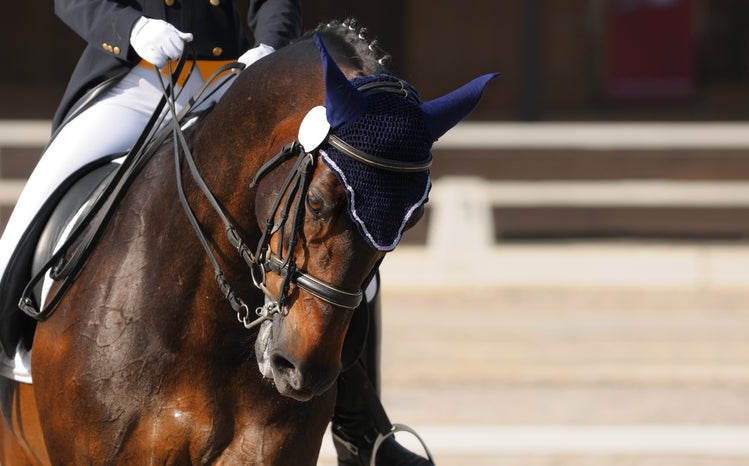Benefits of cross-training your horse
We've all heard of human athlete's cross-training to reap the benefits in their sport and to be more well rounded. Take, for example, runners, swimmers, and triathletes. They train in their own sport but often will do things like Crossfit or other strength training or endurance programs so that they will be stronger, have more stamina and be less prone to injury.
Why should this idea stop at human athletes? Have you ever thought of taking your endurance horse to a dressage lesson, or taking your dressage horse for a spin on a cross-country course? What would the benefits be if we cross-trained our horses for their sport? Being successful in multiple disciplines can have great results and we will take a look at a few of them.
1. Cross -training improves coordination.
Your dressage horse will benefit from doing some pole work or small jumps and your jumping horse can do the same by breaking down transitions or by doing some hacking on uneven ground.
Teaching your horse to work in different disciplines improves awareness of their body and teaches them how to use different parts of their body in ways that they may not be used to.
Doing work over some raised poles might help them to have more mobility in their joints and to get better at picking up their feet. Hacking on uneven ground may help a horse who tends to stumble in the arena.


2. Better suppleness and balance.
Everything works better when your horse has balance and can bend and move with suppleness. The goal is to make your horse more responsive and easier to ride. When jumping, that might mean that they need to adjust their stride at the first sign of your shoulders coming back, or that they keep a better rhythm between fences. For dressage, it may be that you want your horse so in tune with your seat and leg aids that a half-pass may seem like more of a thought than a movement. Maybe you want your trail horse to be able to side pass or turn on the forehand so that you can open a gate or get around obstacles on a trail.

3. Have a better attitude.
If you spent day in and day out jumping, wouldn't you get tired of jumping? If all you did were circles in an arena five days a week for years, how enthusiastic would you be? An unhappy, bored horse can be a hard horse to ride and often lacks enthusiasm.
If your horse doesn't know day to day what you are going to throw at them, they have a tendency to be more excited and willing to participate. Keeping things fresh and new can breathe life into your daily training routine and you might actually have some fun too!
Try doing some jumping and pole work one day, then dressage work on another day. Go for a nice trail ride and let off some steam with a good gallop out in the open or up a hill. Do some groundwork or lunge line work here and there. Maybe do a show or clinic once a month to get some experience being around other people and horses.

4. Better fitness/less injury.
Cardiovascular fitness is very important for health and longevity, but fitness goes beyond just heart health. With cross-training, you are strengthening your horse's bones by building bone density and strengthening soft tissue. You are also helping them build healthy muscle by working multiple areas of the body that may not have otherwise been used working on just one skill set.
Cross-training can also help prevent injury and soreness. The more well-rounded your horse is as an athlete, the less likely he will be to get hurt. By strengthening muscles and tendons through varied movement, you can prevent things like muscle and tendon strains and other kinds of injuries. Changing up your training routine regularly also helps avoid repetitive strain injuries. These are injuries that can happen when we do to much of one thing and don't take breaks to let the body recover.

5. Build your horse's confidence.
Being exposed to a variety of situations makes your horse less spooky and more confident to handle anything that comes their way. It lets them see a variety of interesting objects and gets them used to a lot of things they wouldn't normally be exposed to.
No matter what sport you and your horse take part in, there are many ways to strengthen their skill, their mind and their body for better performance.
Visit us at Hoof-it.com and check out the world's greatest hoof stand and our other great products.

